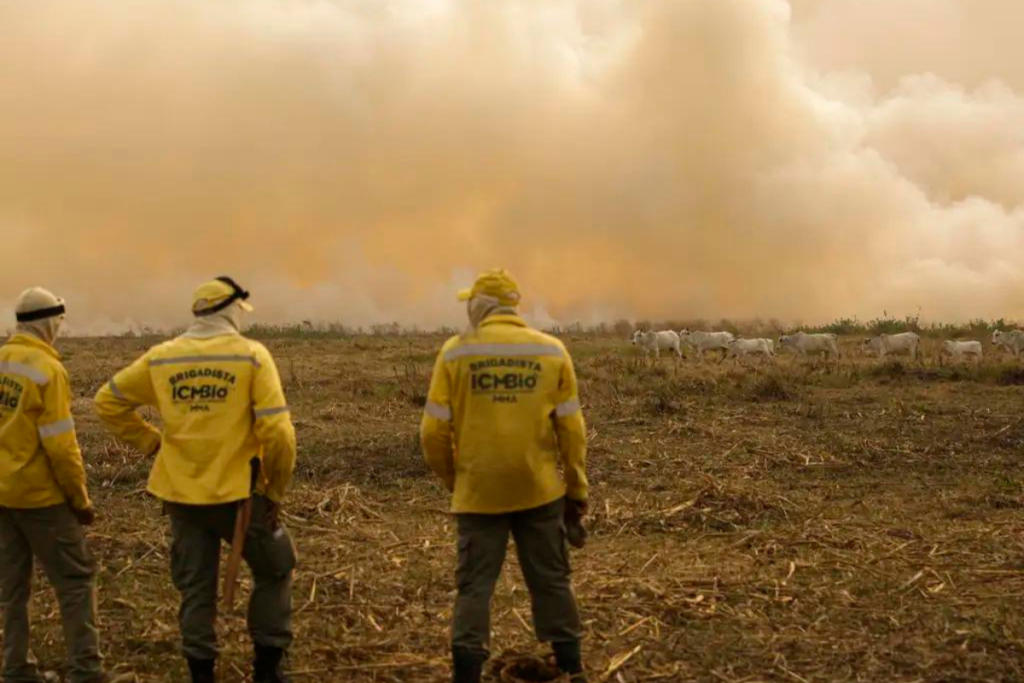Nationwide Strike by Environmental Workers Intensifies, Jeopardizing Brazil’s Ecological Oversight
Federal employees of environmental agencies and the Environment Ministry in five states intensified their industrial action on Monday by joining a full strike. This move comes on the heels of a series of partial strikes that commenced at the beginning of the year, significantly disrupting the nation’s ecological oversight.
The newly affected areas include Acre, Pará, Paraíba, Rio Grande do Norte, and the federal capital, Brasília. Ascema, the union representing public environmental workers, informed The Brazilian Report that only essential activities will be maintained during the strike.
Since January, members of Brazil’s Ibama environmental protection agency, the Environment Ministry, and the Chico Mendes Biodiversity Institute (ICMBio) have been engaging in walkouts and go-slow operations, leading to the suspension of all field activities. Their collective action has seen inspections and licensing processes come to a standstill, casting a shadow over the country’s environmental governance.
As previously reported by The Brazilian Report, the federal government has so far stalled in negotiations with the dissenting workers, an impasse that threatens to undermine Brazil’s environmental initiatives. Alarmingly, according to Ascema, the area of the Amazon compromised by destructive activities such as fires, mining, and logging surged by nearly 17-fold in the first four months of 2024 compared to the same timeframe in 2023. Concurrently, the issuance of fines dropped by a staggering 66 percent, a direct consequence of the go-slow tactics employed by the environmental workers.
The repercussions of the strike extend beyond the environmental sector. Ascema noted that numerous licensing processes in the oil and gas industry have been suspended due to the industrial action. A June 13 statement from the union highlighted that at least two gas pipelines and ten orders for seismic research and well drilling had been adversely impacted.
In May, an executive from oil giant Petrobras conveyed to investors that the Ibama strike could potentially diminish the company’s production by as much as 2 percent relative to projections for the current year. This acknowledgment underscores the wide-ranging economic ramifications of the ongoing strike, hinting at broader implications for Brazil’s energy sector and its economic stability.
The historical context of Brazil’s struggles with environmental management is not new. Echoes of previous industrial actions, such as the 1989 public servants’ strikes during the tail end of Brazil’s military dictatorship, underscore the persistent challenges faced by the nation’s environmental governance framework. This ongoing crisis serves as a somber reminder of the delicate balance between industrial progression and ecological preservation that Brazil must navigate.
For the full details and updates on this unfolding story, visit The Brazilian Report.
